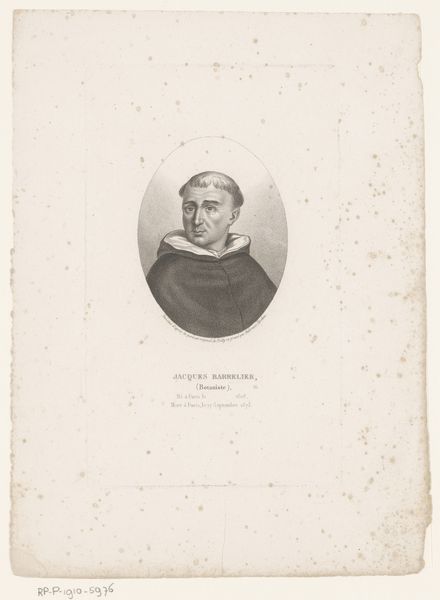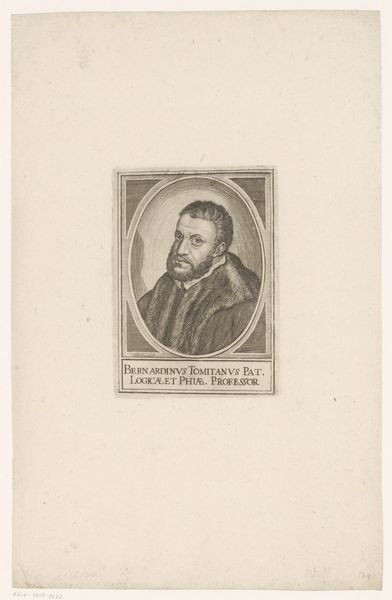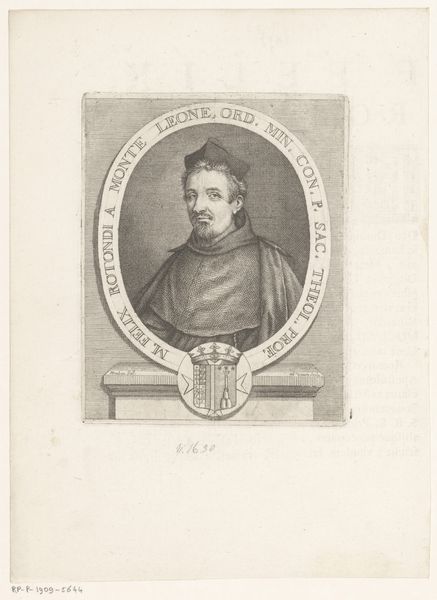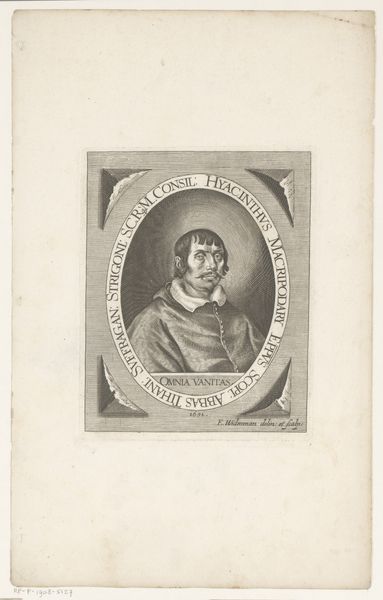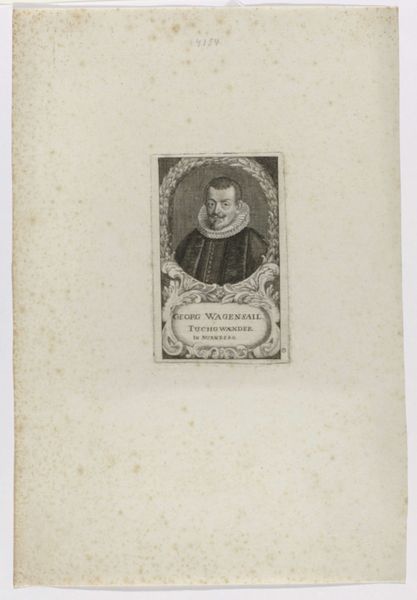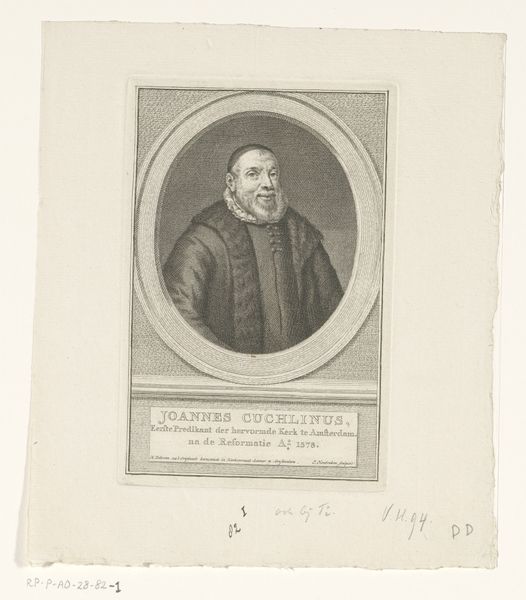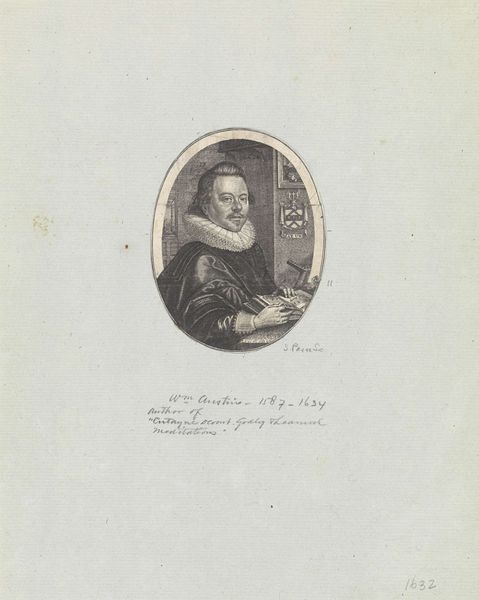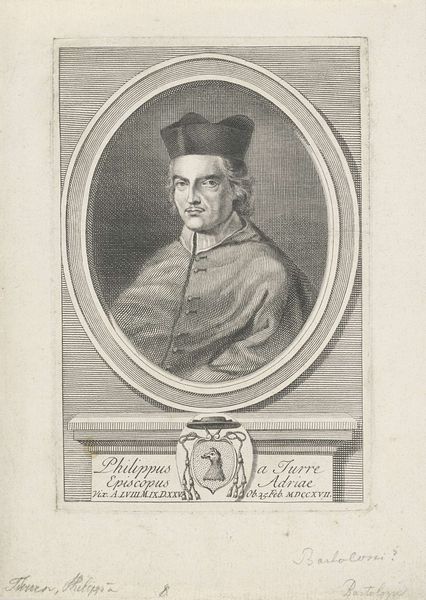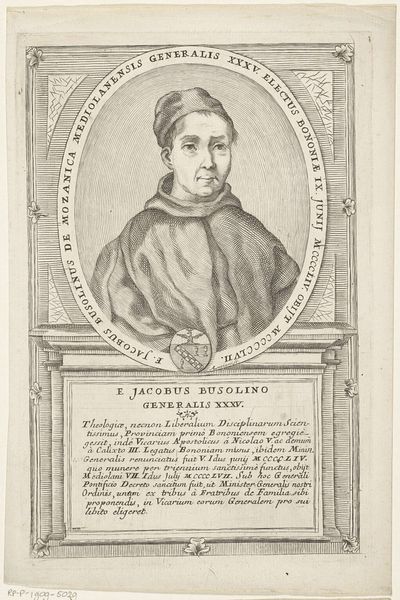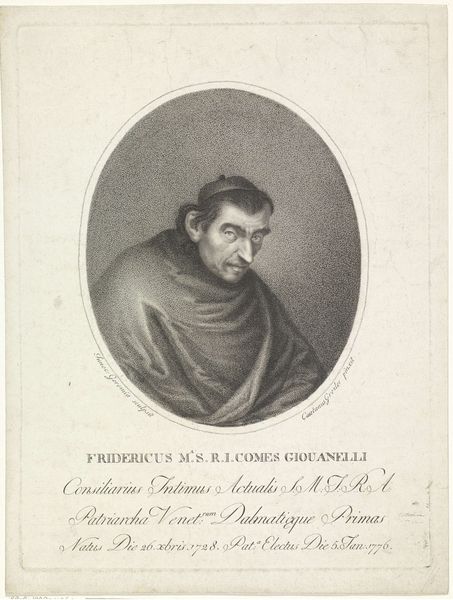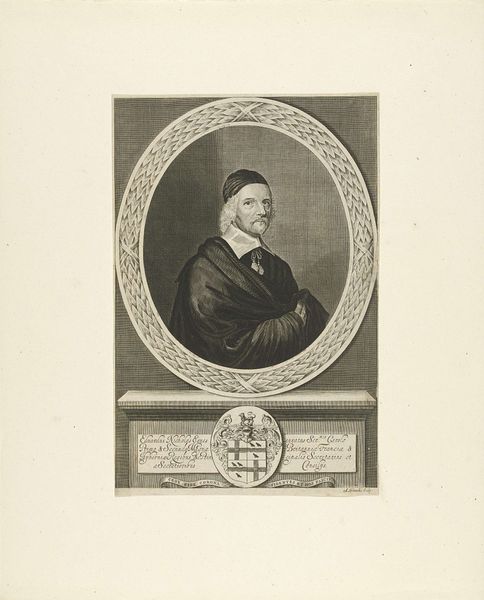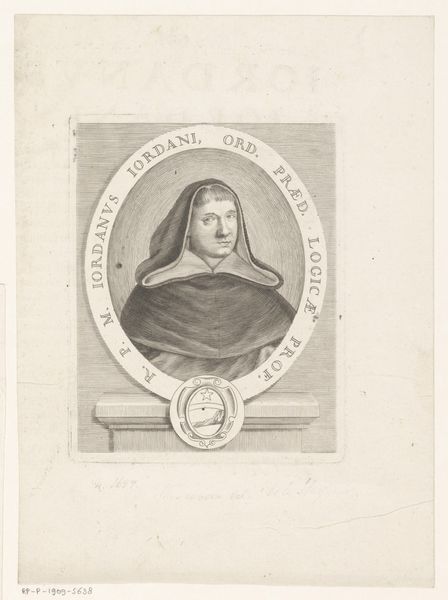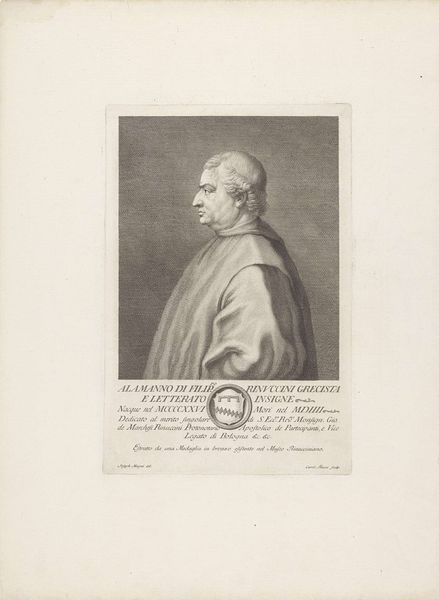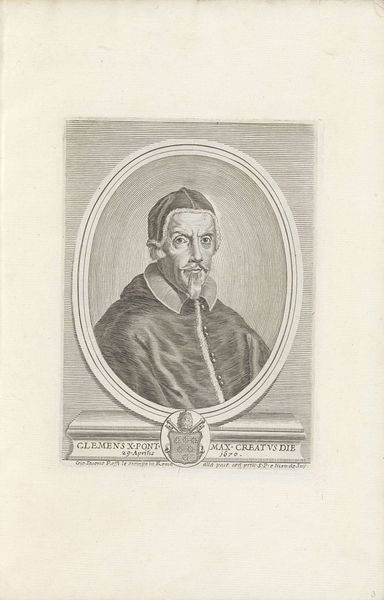
print, engraving
#
portrait
#
neoclacissism
# print
#
history-painting
#
italian-renaissance
#
engraving
#
historical font
Dimensions: height 186 mm, width 115 mm
Copyright: Rijks Museum: Open Domain
This is a portrait of the poet and writer D. Angelus, made by Giuseppe Benaglia, likely around the early 19th century. It's an engraving, meaning the artist would have used a sharp tool to incise lines into a metal plate, which was then inked and printed onto paper. The material quality of the print – its fineness and delicate lines – speaks to a moment of expanding print culture, where images could be reproduced and disseminated widely. Look closely, and you'll notice the incredibly fine hatch marks that create the tonal variations. This was painstaking work, requiring immense skill. Engraving was, in a sense, a proto-industrial technique, reliant on specialized labor. This image reminds us that even seemingly straightforward portraits are the result of complex social and material processes. By attending to these, we can better appreciate the artistry involved, and question traditional hierarchies between art and craft.
Comments
No comments
Be the first to comment and join the conversation on the ultimate creative platform.
